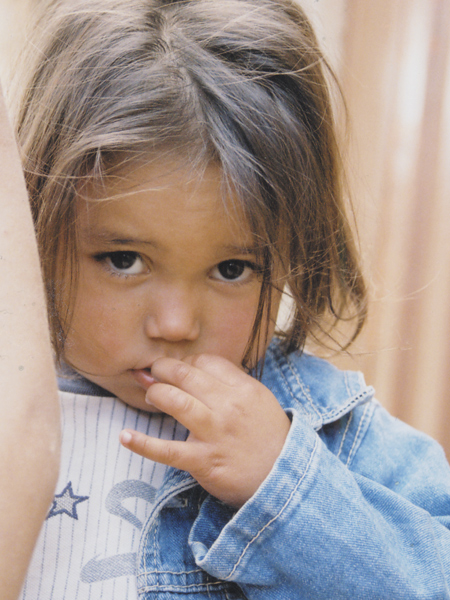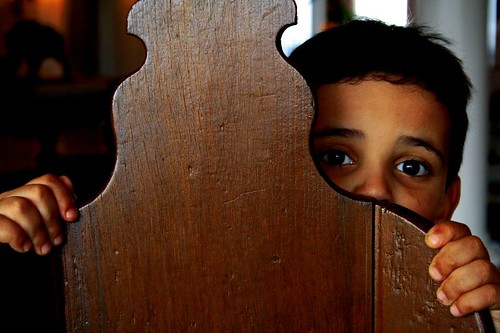Category — 2.4 Children with Environmental Risk Conditions: Emotional Abuse
Emotional Abuse
Emotional abuse is defined as when a person tries to hurt or scar the child emotionally on purpose. Emotional abuse includes the following acts:
- Telling the child that he or she is bad;
- Constantly screaming at the child (Fig. 1);
- Constantly making fun of the child;
- Constantly threatening the child;
- Not giving the child love and affection;
- Telling the child that he or she is worthless;
- Threatening to give the child away;
- Threatening the child;
- Telling the child that they wish he or she was never born;
- Blaming the child for the parents’ own failures;
- Asking the child to take care of the adult who is supposed to take care of them.
Figure 1. Screaming
Children who are emotionally abused need help just as badly as those who are physically abused. Emotional abuse has no physical symptoms (such as scars or bruises). But it has many behavioral symptoms, and they include the following:
- Child may be extremely withdrawn or very shy (Fig. 2);
- Child may be very aggressive towards self or others;
- Child may be very clingy and may form attachment to strangers;
- Child may so starved for affection so he or she will hug or kiss anyone;
- Child may be afraid of almost anything and/or anyone (Fig. 3);
- Child may strictly conform to rules, because of fear of what might happen if he or she disobeys the rules;
- Child may sleep a lot, or not enough (he or she may fall asleep in class, in the middle of a lesson);
- Child may have an eating disorder (such over-eating or under-eating);
- Child may rock back and forth;
- Child may be extremely whiny;
- Child may wet him or herself;
- Child may constantly say bad things about his or herself (for example: I am bad, I am clumsy, I am good for nothing).
Figure 2. Withdrawn or shy
Figure 3. Afraid
Emotional abuse can have negative effects on the development of the child, especially in the following areas:
- Cognition and academics: many children who are emotionally abused do not perform as well as their peers on tests of cognitive functioning (such as IQ tests) (see full Glossary). They struggle with attention and concentration skills. They also don’t perform as well as their peers in almost all academics areas, like reading, writing and math. This may be because they are too lethargic and apathetic (that is, they may not care about anything) to participate in classroom activities and therefore learn. It may also be because they are too scared to try and learn anything because of a fear of failure. Others may under-perform in school because of learned helplessness (see full Glossary) and an inability to pay attention and concentrate on academic tasks;
- Language and communication: many children who are emotionally abused have delayed language skills. They mostly use very simple language and may struggle with the understanding of complex and multi-step directions;
- Social/emotional: many children who are emotional abused have difficulties with their social/emotional skills:
- Social skills: they can be either too compliant or too defiant, and may have very immature social skills (for example, they may act like a younger child would).
- Emotional skills: many struggle with identifying and labeling emotions, both in themselves and others. Most have very low self-esteem and very poor self-confidence;
- Mental health: many children who are emotionally abused struggle the following mental health disorders:
- Depression;
- Anxiety-based disorders, such as phobias;
- Enuresis (lack of bladder control) and/or encropesis (lack of bowel control);
- Suicidal thoughts and attempts;
- Eating disorders (such as anorexia nervosa or bulimia nervosa).
Children who are emotionally abused need a lot of help. Their needs are sometimes missed because they do not display physical symptoms as children who are physically abuseddo. But they need help just as much as those who are physically abused. Like physically abused children, most children who are emotionally abused do not qualify for an Individual Education Plan (IEP) at school. But they could certainly benefit from the following services:
- Psychotherapy: this is what most children who are emotionally abused need first and foremost. Most of them will need regular and sometimes intensive psychotherapy from a clinical psychologist. The psychologist will help them come to terms with what has happened, help them understand that it was not their fault, and help them learn to trust adults again. Family therapy may be needed as well, if the child is still living with his or her biological family;
- School counseling: some children who emotionally abused could benefit from regular sessions from the school counselor, in addition to the sessions that they may be getting from a clinical psychologist. The school counselor could help them these children manage their behaviors and feelings at school;
- Special education services: some children who are emotionally abused, especially those who are behind their peers, cognitively and/or academically, could benefit from the help of the school’s special educator. The special educator will teach the child how to pay attention and get organized, how to concentrate, and also how to read, write and do math.
In the classroom, teachers need to be aware that children who are emotionally abused often behave differently than others. They may be very passive in the classroom, and may refuse to participate in any classroom activities. These children may also be unwilling to trust their teachers, at least in the beginning, because they may be afraid of adults. It is important to note that teachers can do a lot to help these children with the healing process. There is a reason why, at the start of the abuse, many children choose to tell their teacher that they are being abused. Teachers are usually seen as a source of trust and safety, and that is why many children go to them with their personal problems. Therefore, it is highly recommended that a teacher do everything in his or her power to reach the child who is emotionally abused. Working with the school counselor (and psychotherapist, if possible) is highly recommended. The teacher may be the only constant in the child’s life, and his or her role cannot be under stated.To learn more about emotional abuse, please visit the emotional abuse section of the birth to six course.
see References
Crosson-Tower, C. (2009). Understanding Child Abuse and Neglect (8th Ed.). Boston, MA: Prentice Hall.
Jenny, C. (2010). Child Abuse and Neglect. New York, NY: Harper Collins.
McCoy, M. L. & Keen, S. M. (2009). Child Abuse Neglect. New York, NY: Psychology Press.
http://www.nlm.nih.gov/medlineplus/childabuse.html
June 29, 2012 No Comments


